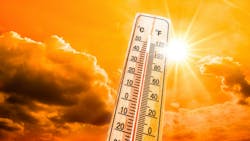Emergency Power Measures Activated in Southeast U.S. as Heat Wave Strains Grid
As a severe heat wave grips the Southeastern United States, federal and state officials have activated emergency measures to safeguard electricity supply and protect vulnerable residents. The U.S. Department of Energy (DOE) and the Georgia Public Service Commission (PSC) have each announced actions aimed at addressing the growing strain on the region's power systems.
On June 24, U.S. Secretary of Energy Chris Wright issued an emergency order under Section 202(c) of the Federal Power Act. The order authorizes Duke Energy Carolinas to operate certain electric generating units at full capacity to meet peak electricity demand caused by ongoing extreme temperatures. The directive, in effect through June 25, is intended to preserve the reliability of the bulk electric power system and avoid potential blackouts. The order was issued by DOE’s Office of Cybersecurity, Energy Security, and Emergency Response (CESER), pursuant to a national energy emergency declaration.
“As electricity demand reaches its peak, Americans should not be forced to wonder if their power grid can support their homes and businesses,” said Secretary Wright. “This order ensures Duke Energy Carolinas can supply its customers with consistent and reliable power throughout peak summer demand.”
Simultaneously, the Georgia Public Service Commission reminded residents of existing consumer protections in place during heat emergencies. Under PSC Rule 515-3-2-.04 (02), Georgia Power is prohibited from disconnecting electric service to residential customers for non-payment if a National Weather Service (NWS) heat advisory or excessive heat warning is in effect, or forecasted, for the area. This rule applies only to Georgia Power, the state's regulated utility; customers of electric membership corporations (EMCs) and municipal systems are advised to check with their individual providers for similar protections.
The PSC emphasized that the restriction is temporary and disconnections may resume once heat advisories are lifted.
What can utilities do to prepare?
Electric utility companies are faced with unique challenges in maintaining uninterrupted power for millions of consumers during a heat wave. Sendero Consulting Principal Jay Jayasuriya said it’s imperative that utility companies adopt comprehensive preparedness plans to mitigate outages caused by heat waves or other natural disasters.
"To prepare for the impacts of a heat wave, electric utility companies must first strengthen infrastructure by upgrading legacy systems and conducting preventative maintenance," he said. "They should also establish disaster response procedures, such as stockpiling inventory and redeploying workers for emergency duty."
Jayasuriya said Forming mutual assistance agreements with other organizations enables the sharing of resources during emergencies, "Proactive preparation through these measures is essential to minimizing disruptions and maintaining reliable service during extreme heat events. While preparation is key, effectively responding during a heat wave requires immediate action and adaptability. This means being ready to pivot resources and focus intensely on immediate operational and customer needs."
What strategies should utilities be implementing during a heat wave?
While preparing for outages is necessary to maintain service, effective strategies during and after the heat wave are just as crucial.
Jayasuriya said during a heat wave, utility companies should halt all proactive projects and focus on customer needs. He emphasized that clear and effective communication with customers is paramount, which includes keeping customers informed on outages with an up-to-date outage map and providing realistic power restoration estimates.
"Effective strategies for customer communication during a heat wave include the utilization of multiple communication channels, such as texts, emails, social media and mobile apps to keep customers informed," he said. "During times of high stress, it’s important to provide multiple means of communication to ensure the utility company is offering appropriate assistance. It’s also inevitable that electricity companies will experience high call volumes when outages occur, which must be managed effectively. The utility company will need to facilitate thousands of calls per minute, relying on surge management procedures to provide support and maintain accessibility for customers.
What strategies should utilities be implementing after a heat wave?
According to Jayasuriya, after a heat wave, the initial focus for utility companies should be on addressing customer and system pain points, "This includes conducting root cause analyses to assess performance, evaluating customer interactions and system operations. Key areas to examine include inaccurate outage maps, specific locations that were restored faster than others and customer feedback. Based on these evaluations, utility companies should adopt system and process improvements for future heat wave events, ensuring overall reliability."
About the Author
Christina Marsh
Senior Editor
Christina Marsh is senior editor of T&D World at Endeavor Business Media (EBM), responsible for managing, editing, and contributing to the print issue production in addition to e-newsletters and digital content including podcasts. Previously, Christina was editor of Airport Business at EBM where she was responsible for contributing editorial support for the magazine, writing and compiling e-newsletters as well as contributing to digital content including producing video and podcasts. Before working with EBM, Christina was a multimedia journalist and podcast producer at The Experimental Aircraft Association (EAA). She graduated with a B.S. in journalism from the University of Wisconsin Oshkosh.

